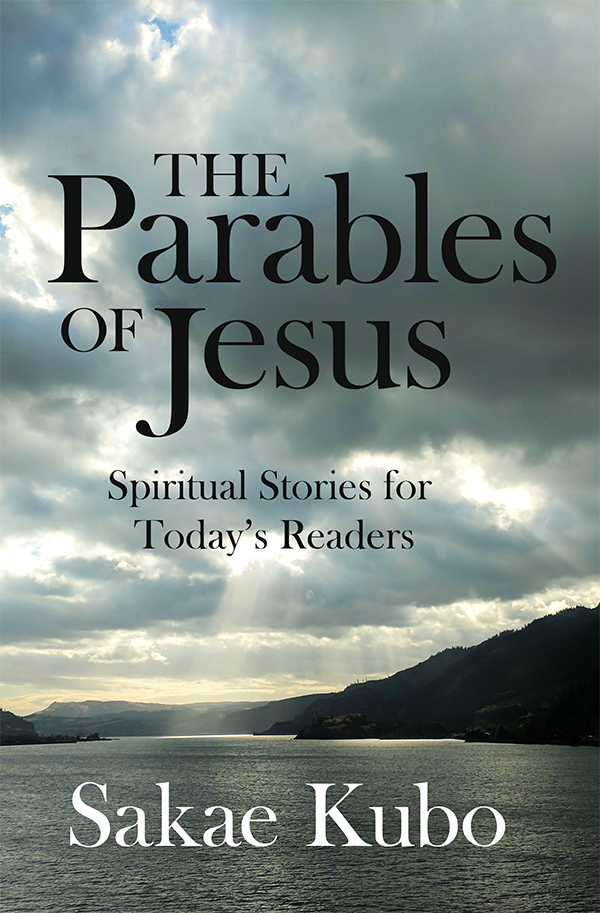The Parables of Jesus
The following passages have been excerpted from Adventist Today’s new book just released this week, and shared with you as devotional reading. May God bless you personally, as much as God has blessed Adventist Today abundantly in 2017.
“A.J. Cronin’s son, who was studying medicine at McGill University, told him the story of a patient whose life was saved by a blood transfusion. Later the patient asked: ‘Isn’t there any way I can discover the name of a donor and thank him? He was told that names were never divulged. After being discharged, this patient returned again and again to donate blood. When someone commended him for his splendid record of anonymous service, he said simply, ‘Someone I never knew did it for me. I’m just saying thanks.’ Jesus’ life was poured out to deliver us from the depths of sin and bondage. He gave us a blood transfusion that saved our lives. How are we saying thanks?” [The Two Debtors, p. 83, about Luke 7:36-50]
“The third way the parable would lose it’s impact is if we forget that tis story was told to a Jewish audience. By making the Samaritan the hero, Jesus shocked his audience. Today, the force of the parable might be lost because we associate the world ‘Samaritan’ with people who care for others. A.C. Forrest writes, ‘An American pastor in the Middle East told me once that he had often preached from this parable to American congregations, but he had never had the courage to do it in the Middle East. It was too relevant. It could be too relevant in South Africa, Northern Ireland, and many other parts of our modern world, too.’ A.M. Hunter makes the application in South African terms with the Afrikaner as the victim; the priest the Levite, two ministers of the Dutch Reformed Church; and the Good Samaritan, a native Bantu. This story could be told with similar effect to audiences in the United States composed of lumbermen and eco-terrorists and right-to-life advocates and abortion doctors.” [The Good Samaritan, p. 86, about Luke 10:25-27]
“In this parable it is the one-talent slave who fails to produce, but in real life there are just as many five-or-ten-talent persons who fail the Master. Because it is so much easier to keep ahead of the crowd without too much effort, these people can become complacent and too easily satisfied with results that are far below their capability. Some of those entrusted with many talents are the greatest disappointments and failures in life. On the other hand, others, like the slave who is entrusted with only two talents, become successful through self-discipline and hard work. Buttrick imagines this slave as a blunt and honest mane with none of the finesse and mental quickness of his more talented neighbor. He plodded away at his task. If his money was invested in farming, he drove his oxen hard. If a vineyard was his to tend, he pruned or tied or gathered diligently, working from sunrise to sundown. So by the sheer fidelity of toil he made his two talents yield four. … ‘Take the talents from the slave and give it to the one with ten talents’ is not as much an arbitrary command as a law of life. God is not unreasonable. However, He expects us to have done our best.” [The Talents and the Pounds, p. 139, about Luke 19:11-27]
“There are different types of hearers. Not everyone responds in the same way. There are those who are like seeds that fall on the path. Because the path has been well-trodden, it is impenetrable. The seeds, there, have no chance to germinate and grow. These hearers are those who have such closed minds that the seeds of the Gospel cannot penetrate the soil. ….As we look at this group of hearers, the tendency is for us to think that it represents others. But can the seed germinate in the soil of our lives? Does God speak only to Christians? What does it mean when we refer to ourselves as being ‘in the Truth’ and others as being ‘out of the Truth?’ Are we open to new light and new opportunities? Are we sure that people from other church or other religions know nothing of real religious significance? Do we dogmatically assert that other Christians who disagree with us have been ‘tainted by the world,’ ‘led astray’ are ‘lowering standards, ‘studying their way out of the church,’ have been ‘duped by secular humanism’ or ‘converted to the theory of evolution’? Do we accuse them of ‘learning their theology in secular universities’ and ‘throwing out the words of our church leaders’?” [The Four Soils, p. 11, about Mark 4:3-8]
Merry Christmas!





